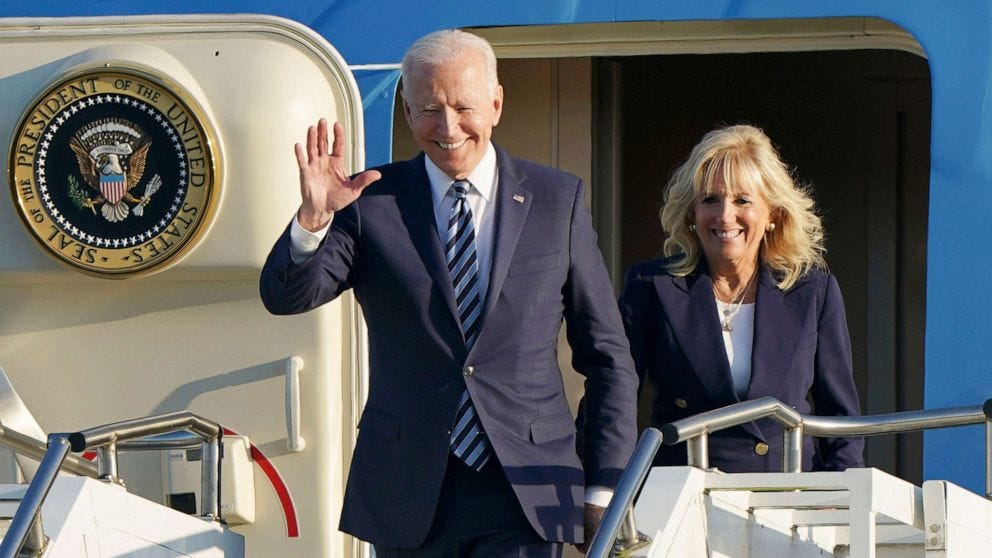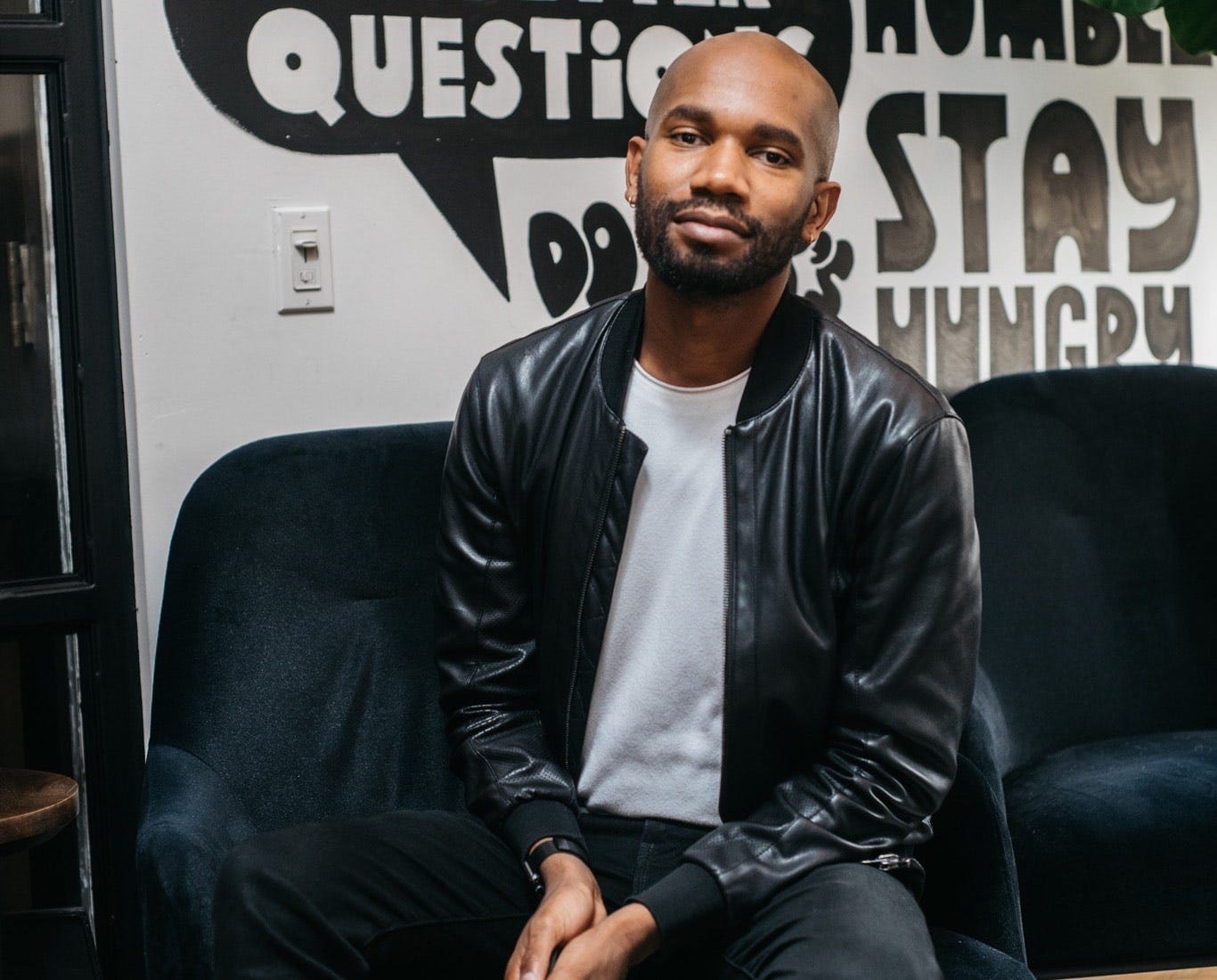Supercreator Select: “The only time I'm not thinking about writing is when I'm physically writing”
In this week’s issue: A conversation with writer and digital strategy executive Ryan Sides, my thoughts on mentorship and more
☀️ Happy Sunday!
Welcome back to Supercreator Select, a weekly newsletter for premium subscribers to The Supercreator filled with exclusive features to help you escape from the relentless digital news cycle, discover inspiration to apply to your creative work and focus your attention on the stories that matter to you and your creativity.
In this week’s issue: I share my full conversation with writer and digital strategy executive Ryan Sides, answer a reader-submitted question on mentorship and preview the stories I’ll be covering in the upcoming days.
I hope you enjoy the issue!
The Supercreator Interview: Ryan Sides
For this week’s Supercreator Interview, I checked in with Ryan Sides, a New York City-based writer and digital strategy executive. During our chat, Ryan shared how he accidentally stumbled his way into digital and creative strategy, why he uses his platform to talk openly about salary negotiation and other once-taboo career topics and what he misses most about our hometown Dallas. Below is our full conversation, edited for length and clarity.
The Supercreator: You’ve worked in digital and creative strategy since 2014. How did you get started?
Ryan Sides: By accident and necessity actually! I'd lost the piece of a job I had in New York waiting tables at Max Brenner and fell behind on rent rather quickly. I spun my resume to highlight the digital work I'd been doing as a mostly unpaid freelance blogger and my own social media addiction to represent my familiarity with social strategy. It got me a small, paid freelance gig for a private company on the [Upper East Side] and I spun that into a job at an agency in Boston. After that, I tried to take on as much work as possible so my client portfolio represented a high-dollar value and set my sights on applying to the list of companies I wanted to work for.
How has the cultural and industry landscape shifted from then to now?
Culturally, speaking from the spaces I occupy (cis, male, Black, queer, able-bodied and somewhat college educated) I think people move at least with the impression that they're being inclusive, considerate and thoughtful in their approach to communication and work relationships. This also depends on where you work and the types of boundaries you can get away with setting. Being optimistic, I think a lot of people are trying, whether that be for optics or in earnest, who knows? As for the industry, it's much of the same and maybe even worse since the pandemic.
What’s an underrated (or under-appreciated) skill people who don’t do what you do would be surprised to learn is critical to being successful at what you do?
Listening. And by listening, I mean being in tune with as much of internet culture and online sentiments as possible. That's the only way to know what rules you have to adhere to strictly, which ones you can bend and which ones you can break.
What’s a campaign or project you’re proud of and why?
Two that’ve made me most proud would be having worked on ComplexCon 001 and 002 and having been in the position to launch BET’s 29 Days of Black Queer Excellence. With ComplexCon the sheer scale, impact and the fact that nothing like it had ever been done. So many hands went into bringing that to life and I'm very proud to have been a part of it's first and second runs.
With BET BQE, myself and former PR lead Dezmon Gilmore were committed to chipping away wherever possible at the major issues between BET and the Black queer community it’s been both passively and actively harmful toward. This included creating a safe space for the social and digital teams to pitch and execute on ideas that centered Black queer people and advocating for more positive, on-air queer representation for the network, the effects of which are still being seen today.
You’ve used your platform to increase transparency how to break into the industry, negotiate equitable salaries and how to claim a seat at the table. Was this an intentional choice? And why do you think other experienced creators are hesitant to do the same?
This was absolutely an intentional choice, and it came out of me experiencing it in my professional life offline. I think many other experienced creators are hesitant because we’ve [been] conditioned to believe that someone else’s success means fewer spots or resources for us to grow into success or more success.
We’ve also not often been in situations where we’ve had the privilege of being critical of our employers and had to take what we were given, out of necessity and survival. Now that many of us are no longer in that place of taking what we’re given, it’s empowered us to be bolder about how we show up in professional environments, up to and including being more transparent about salaries and trajectories, to the benefit of ourselves and those coming afterward.
You work and live online, which I’m sure can be a lot sometimes. How do you create digital boundaries between the two?
This is something that I’ve always struggled with and was amplified by [the pandemic]. I’ve maintained a pretty strong gauge on my outputs — it's easy to pinpoint how much of my personal business I share — but my inputs are my weak spot. I very easily get caught up in so many meaningless conversations, not even participating, just observing, that ultimately impact my mood in real-life ways.
I’ve had to learn and be more judicious about scrolling past stories that are nonsensical, or just someone's baseless attempt at getting retweets or engagement to protect my peace. And ultimately, I’m actively plotting my escape from social as my 9–5 and maybe even a bigger departure than that, who knows!
You’re also a prolific writer. I really enjoyed your piece on LNX and "MONTERO (Call Me By Your Name)". How did you develop your distinct voice and can we expect more stories from you in the future?
OMG, this is such an appreciated compliment! Literally, the only time I'm not thinking about writing is when I'm physically writing. Any time beyond that I'm thinking about stories I'm working on or want to be working on. When I'm reading I'm thinking about how can I write as well as the person who wrote this or how I'd have written it differently. So that, and understanding that the thing I care most about and am most impacted by are stories about relationships (all kinds) and emotions, really shaped my focus and my voice as a writer. Much, much, much more to come from me and very soon — within the year!
We’re both from Dallas and rarely miss a moment to rep D-Town. What do you miss most about the south? And what about the south makes you glad you moved?
Whew, the thing I miss most about Dallas is the niggas! [Laughs] I'm half kidding. I miss southern sensibilities and the strong sense of community. I also miss the food and the music. As for what I'm glad I left behind: I didn't have the language for it when I left at 18 but it was so hard building a progressive and inclusive community at home. I think the people that I grew up around were the type to accept an individual to the degree that their personal investment would allow. But that same tolerance would never be extended to the group of other people who may identify or express similarly.
I’m always lurking your Twitter timeline to see what you’re cooking, watching, reading or listening to. Are there any recipes, books, shows, movies, albums, et cetera, that you’re geeked about as we head into the summer?
Too many to name: Invincible was a much different take on a superhero animated series. Love, Death & Robots is a phenomenal animated series. I just wrote about Mustafa The Poet's debut album. Listen to that when you're in a sad and pensive mood. And I just got into a podcast about writing called “Start With This.” Highly recommend!
Finally: What’s next for you?
Writing professionally and at a scale that I've never written before: Mixed media/multi-disciplinary — films, TV, podcasts, visual and immersive components for your favorite artists, et cetera.
I can’t wait to see what you do next. Is there anything else you’d like to share?
We should want better from Tyler Perry than a good jobs report.
[Laughs] I agree.
Subscribe to Ryan’s Substack and follow him on Twitter to keep up with his work and off-the-clock adventures.
Coming next week: [Insert next week’s Supercreator Interview subject here]
Ask Michael: “How did you find your mentors?”
Do you have mentors? If so, how did you find them and how do you maintain a connection with them?
I’ve also bristled at the notion of “self-made success.” Even though I’ve done the work, the world isn’t really set up for people who look like me and come from where I’m from to succeed in journalism. So it would be disingenuous to pretend I got here on my own.
I’m proud of the fact that I wouldn’t be where I am without mentors, dating all the way back to Michael Tate, my high school journalism teacher who during my senior year planted the seed that I could make a career out of the profession. I’ve had mentors who helped me develop skills like how to edit or write a headline, mentors who helped me navigate pernicious office politics and mentors who called in 11th-hour favors when I needed them most. But the wild part is I never set out to attract them. And many of my mentors weren’t looking for “mentees.” At the end of the day, it’s all about relationships and relationships are built on trust.
I also think what’s helped me is that I’ve almost always had a high level of clarity about the kind of work that fulfills me and a willingness to learn and be coached. (You’re never too old or accomplished to learn from someone who’s been where you’re going.) These qualities tend to situate me near people who want to see me win and are willing to share their experience and connections to help me level-up.
As far as staying connected, I think of it as my responsibility to keep in touch. I pay attention to their career trajectories and show love when they’ve notched a big win. I ask about their families and do my best to see them as humans instead of favor-doers. And I share important career milestones of my own so they can celebrate with me. Lastly, I try to pay forward the generosity of my mentors by investing in the success of creators who are alongside or coming behind me.
My life is a testament to the fact that if you’re willing to believe it, there are enough people out there who care enough about us to pour into us. So be yourself, do your best work and share it with the people you admire — and hopefully they’ll want to be a part of your journey going forward.
Have a question about American politics, the creator economy or how to make, brand, market and sell with confidence and clarity? Reply to this email or leave a comment below and it may be featured in an upcoming post.
Coming next week: Who are your current creative inspirations?
Looking Ahead

Here’s a preview of what’s on my radar this week:
Biden’s first overseas trip as POTUS: The president will attend the G7 Summit in St. Ives, United Kingdom today to discuss pressing issues on the global stage and coordinate policy with the other member states. Then he’ll attend the NATO Summit in Belgium on Monday and all eyes will be on his meeting with Russian president Vladimir Putin in Geneva, Switzerland on Tuesday.
New York City primaries: Early voting for the hundreds of candidates running for NYC mayor, comptroller, City Council, borough president and Manhattan district attorney started yesterday (the primary election is on Tuesday). Under the city’s new ranked-choice voting system, voters will be able to rank up to five candidates on the primary ballot.
Infrastructure: A bipartisan group of five Democrats and five Republicans agreed on a framework for an infrastructure bill that they think can pass both chambers of Congress. But two of the four reported revenue streams cross the Democrats’ red lines and Republicans are a hard “no” to raising taxes, which is how the left wants to pay for the legislation. So it seems like we’re a ways away from the finish line.
The evictions crisis: A House Judiciary subcommittee will hold a hearing on potential remedies for unlawful evictions in federal emergency areas as experts predict a massive wave of evictions are on the horizon (Jun 14).
World Blood Donor Day (Jun 14): I’m reminded of the need for safe blood and grateful to blood donors for the lives their gifts save.
Juneteenth (Jun 19): It’s been dope to see this annual holiday commemorating the end of slavery in the US get more mainstream attention in recent years.
If you have any tips on the people, companies, products and trends shaping how we work and live in the creator economy? I’d love to hear from you. DM me on Twitter or reply to this email. If you require additional anonymity, I have set up encrypted tiplines for extra security. Just get in touch and we’ll go from there.
Thank you for reading! I hope you enjoyed this week’s Supercreator Select. Leave a comment below or reply to this email and let me know what you thought of this week’s issue. If you know someone in your life or on your team who would find The Supercreator useful, purchase a gift or group subscription on their behalf. You can also buy me a coffee to extend your support of this one-person media business.
And remember: In addition to Supercreator Select, your subscription to The Supercreator includes 24/7 access to the full archive and access to my private calendar to book 20-minute check-ins during my weekly office hours. Thank you for supporting my work. See you in tomorrow’s Supercreator Daily. —Michael ✨



